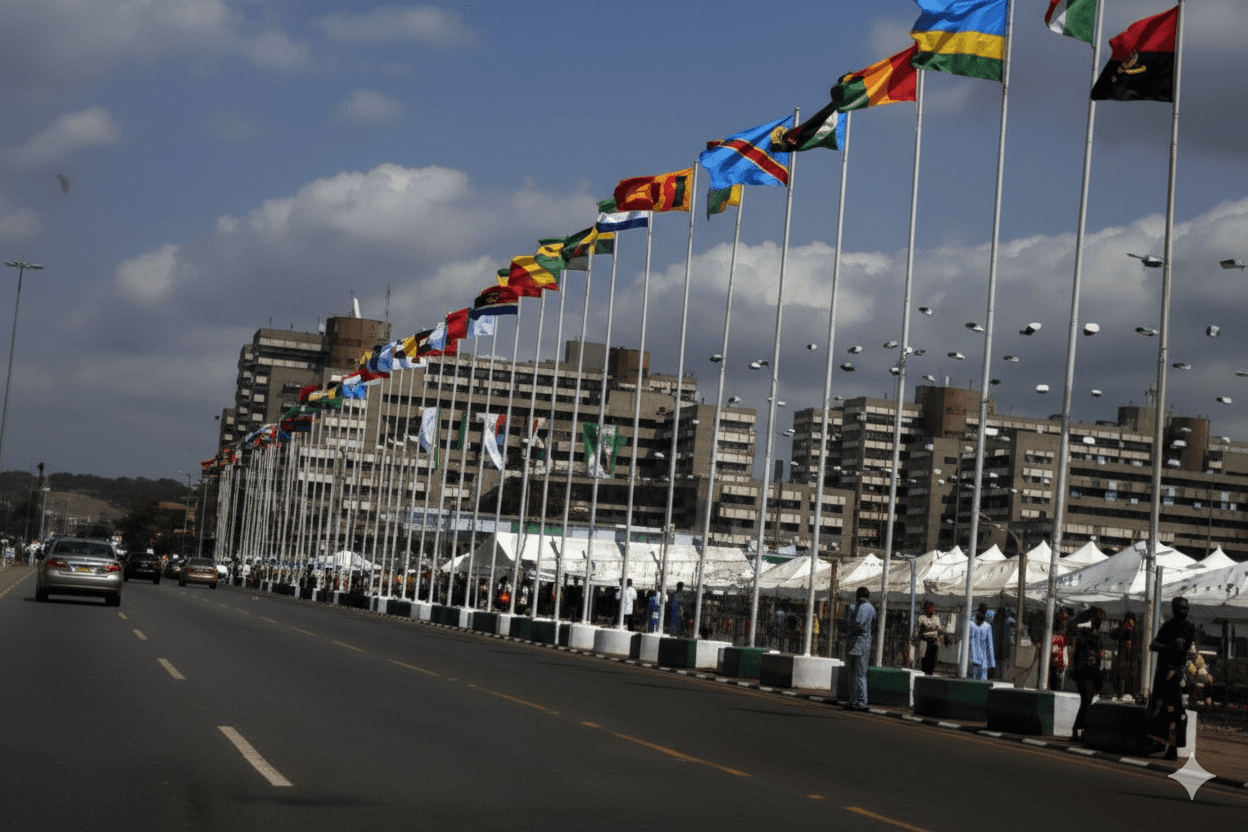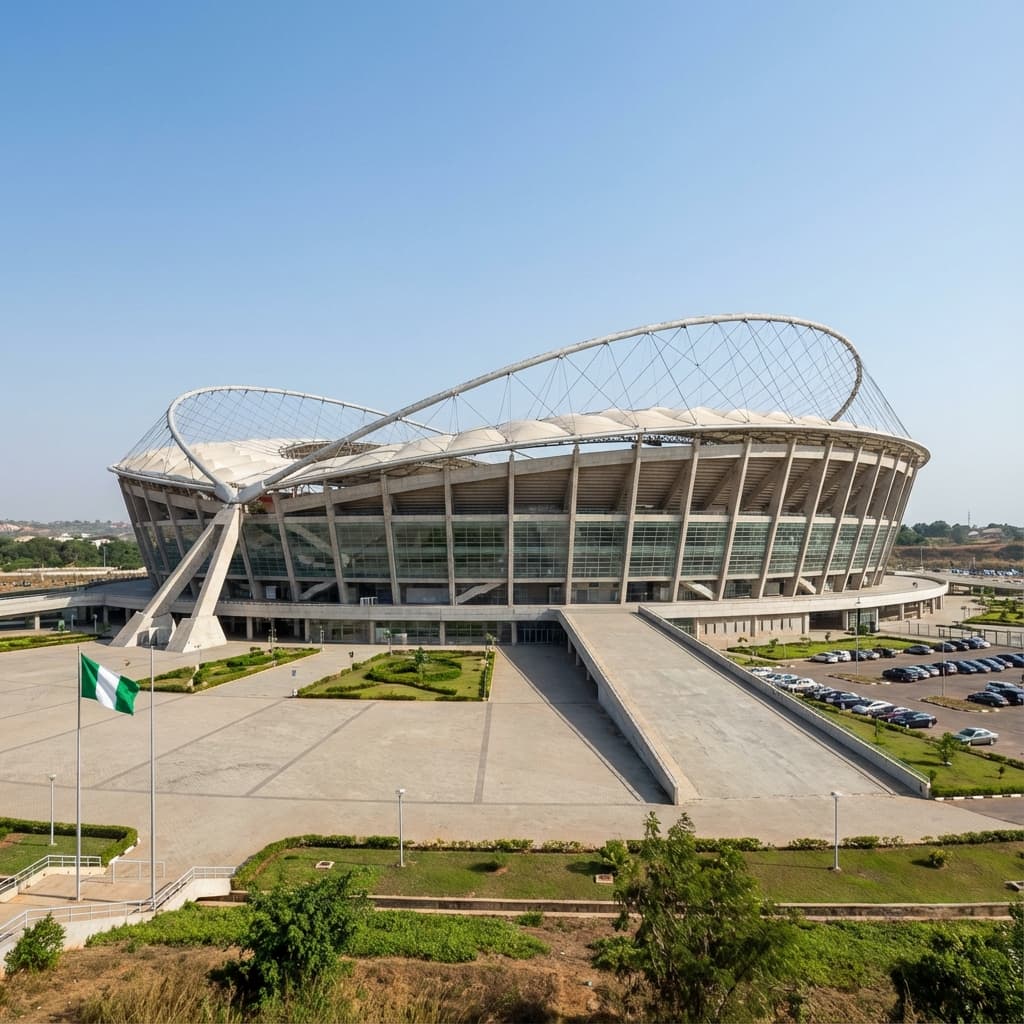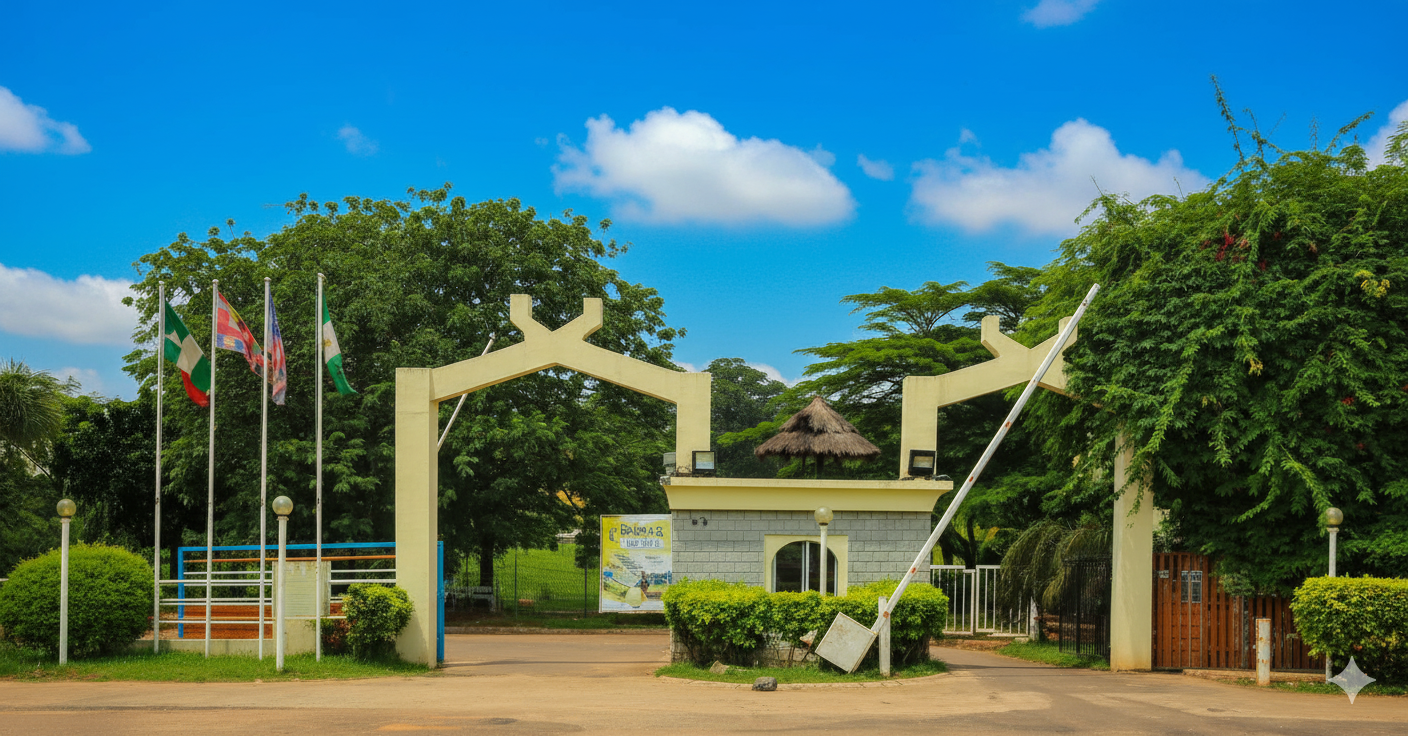Eagle Square Abuja: Visitor Guide (2025)
Explore Eagle Square Abuja, Nigeria's premier event venue. A 2025 guide to its history, national significance, and visiting information.

Eagle Square Abuja: Nigeria's Premier Event Venue - Complete Visitor Guide 2024
Eagle Square Abuja stands as Nigeria's most prestigious and historically significant public square, serving as the ceremonial heart of the nation. This iconic venue has hosted countless national celebrations, political rallies, cultural events, and international gatherings that have shaped Nigeria's history and identity.
The Historical Significance of Eagle Square
Eagle Square holds a special place in Nigeria's national consciousness, having witnessed some of the country's most important moments:
Key Historical Events:
- Independence Day celebrations and national anniversaries
- Presidential inaugurations and swearing-in ceremonies
- National parades and military displays
- International conferences and diplomatic events
- Cultural festivals and traditional celebrations
- Political rallies and public demonstrations
Architectural and Cultural Importance:
- Symbol of national unity and pride
- Architectural landmark representing modern Nigeria
- Cultural significance as a gathering place for all Nigerians
- Political importance as the center of national ceremonies
- Tourist attraction showcasing Nigeria's heritage
The Eagle Monument: Symbol of Nigerian Pride
At the heart of Eagle Square stands the magnificent Eagle Monument, a powerful symbol of Nigeria's strength, unity, and aspirations:
Monument Features:
- Bronze eagle sculpture representing national strength
- Impressive scale and artistic craftsmanship
- Symbolic positioning at the center of national ceremonies
- Photography landmark for visitors and dignitaries
- Cultural significance in Nigerian symbolism
Symbolic Meaning:
- Strength and power of the Nigerian nation
- Unity and diversity of the Nigerian people
- Aspiration and progress toward national goals
- Pride and identity of Nigerian heritage
- Leadership and vision for the future
Events and Ceremonies at Eagle Square
National Celebrations:
Independence Day (October 1st):
- Grand military parades and displays
- Cultural performances from all regions
- Presidential addresses and national speeches
- International dignitaries and diplomatic corps
- Public celebrations and community events
Democracy Day (June 12th):
- Commemorative ceremonies honoring democratic progress
- Political speeches and national addresses
- Cultural displays and traditional performances
- Public participation and civic engagement
- Historical reflections on democratic journey
Presidential and Government Events:
- Presidential inaugurations and swearing-in ceremonies
- State visits by foreign dignitaries
- National addresses and policy announcements
- Cabinet meetings and government ceremonies
- International conferences and summits
Cultural and Community Events:
- Traditional festivals and cultural celebrations
- Religious gatherings and interfaith events
- Youth programs and educational events
- Community celebrations and civic events
- International cultural exchanges
Visiting Eagle Square Abuja
Location and Access:
- Address: Central Area, Abuja, FCT, Nigeria
- GPS Coordinates: 9.0579°N, 7.4951°E
- Accessibility: Easily accessible from all parts of Abuja
- Parking: Limited parking available during events
- Public Transport: Multiple bus routes and taxi services
Best Times to Visit:
During Special Events:
- Independence Day celebrations (October 1st)
- Democracy Day ceremonies (June 12th)
- Presidential inaugurations (every 4 years)
- Cultural festivals and national celebrations
- International conferences and summits
Regular Visits:
- Weekday mornings for peaceful exploration
- Late afternoons for photography and sightseeing
- Weekends for casual visits and family outings
- Evening hours for illuminated monument views
What to Expect During Visits:
During Events:
- Security checks and bag inspections
- Crowded conditions and limited parking
- Restricted access to certain areas
- Extended hours and special arrangements
- Enhanced security and crowd management
Regular Visits:
- Open access to the square and monument
- Photography opportunities without crowds
- Peaceful atmosphere for reflection
- Educational experience about Nigerian history
- Cultural appreciation of national symbols
Photography and Sightseeing
Best Photography Spots:
The Eagle Monument:
- Close-up shots of the bronze eagle sculpture
- Wide-angle views showing the monument's scale
- Different angles highlighting artistic details
- Lighting variations throughout the day
- Contextual shots with surrounding architecture
The Square Itself:
- Panoramic views of the entire square
- Architectural details of surrounding buildings
- People and activities during events
- Seasonal changes and weather effects
- Historical significance through visual storytelling
Photography Tips:
- Early morning or late afternoon for best lighting
- Wide-angle lens for full square views
- Telephoto lens for monument details
- Tripod recommended for low-light conditions
- Respect security guidelines during events
Nearby Attractions and Landmarks
Government Buildings:
- Presidential Villa (Aso Rock) - 5 minutes drive
- National Assembly Complex - 10 minutes drive
- Supreme Court - 8 minutes drive
- Federal Secretariat - 3 minutes walk
- Ministry buildings - 5 minutes walk
Cultural and Historical Sites:
- National Mosque - 10 minutes drive
- Nigerian National Christian Centre - 8 minutes drive
- National Museum - 15 minutes drive
- Millennium Park - 5 minutes drive
- Abuja City Gate - 20 minutes drive
Shopping and Dining:
- Central Business District - 10 minutes drive
- Wuse Market - 15 minutes drive
- Jabi Lake Mall - 20 minutes drive
- Local restaurants and cafes nearby
- Traditional markets in surrounding areas
Practical Information for Visitors
Admission and Access:
- Free admission for regular visits
- Special events may require tickets or invitations
- Security screening during major events
- Accessibility for persons with disabilities
- Guided tours available by arrangement
Safety and Security:
- High security presence during events
- Bag checks and security screening
- Follow all instructions from security personnel
- Keep valuables secure and out of sight
- Stay informed about current security guidelines
What to Bring:
- Valid identification (required for events)
- Camera equipment for photography
- Comfortable walking shoes
- Water bottle and snacks
- Sun protection (hat, sunscreen)
- Cash for local purchases
Dress Code:
- Respectful attire appropriate for national monument
- Comfortable clothing for walking and standing
- Weather-appropriate clothing
- Formal wear may be required for special events
- Cultural sensitivity in clothing choices
Events Calendar and Planning
Annual Events:
- January: New Year celebrations and national addresses
- February: Valentine's Day events and cultural programs
- March: Women's Day celebrations and gender equality events
- April: Easter celebrations and religious observances
- May: Workers' Day celebrations and labor events
- June: Democracy Day (June 12th) - Major national celebration
- July: Youth Day celebrations and educational events
- August: Independence Day preparations and cultural events
- September: Independence Day countdown and community events
- October: Independence Day (October 1st) - Major national celebration
- November: Cultural festivals and traditional celebrations
- December: Christmas celebrations and year-end events
Planning Your Visit:
- Check event calendar for upcoming celebrations
- Book accommodations early for major events
- Arrive early for popular events and ceremonies
- Follow official announcements for event details
- Consider guided tours for historical context
Cultural Significance and National Pride
Eagle Square represents more than just a physical location—it embodies the spirit and aspirations of the Nigerian nation:
Symbols of National Unity:
- Gathering place for all Nigerians regardless of background
- Ceremonial center for national celebrations
- Symbol of democracy and political participation
- Cultural diversity celebration and unity
- International recognition as Nigeria's ceremonial heart
Educational Value:
- History lessons about Nigeria's development
- Civic education about democratic processes
- Cultural appreciation of Nigerian diversity
- National pride and identity formation
- International relations and diplomatic significance
Frequently Asked Questions
Is Eagle Square open to the public?
Yes, Eagle Square is open to the public for regular visits, though access may be restricted during special events and ceremonies.
Can I take photographs at Eagle Square?
Photography is generally allowed during regular visits, but restrictions may apply during special events. Always follow security guidelines and respect any posted restrictions.
What's the best time to visit Eagle Square?
The best time depends on your interests: early morning or late afternoon for peaceful visits, or during special events for the full ceremonial experience.
Are there guided tours available?
Guided tours may be available by arrangement, especially for educational groups and international visitors. Contact local tour operators for availability.
Is parking available at Eagle Square?
Limited parking is available, but it can be challenging during major events. Consider using public transportation or arriving early.
What should I wear when visiting Eagle Square?
Dress respectfully and appropriately for a national monument. Comfortable walking shoes are recommended, and formal attire may be required for special events.
Conclusion
Eagle Square Abuja stands as a testament to Nigeria's rich history, vibrant democracy, and cultural diversity. As the ceremonial heart of the nation, it offers visitors a unique opportunity to witness and participate in the events that shape Nigeria's present and future.
Whether you're attending a national celebration, exploring the square's historical significance, or simply appreciating its architectural beauty, Eagle Square provides an unforgettable experience that connects you with the spirit and pride of Nigeria.
Plan your visit to Eagle Square today and become part of Nigeria's ongoing story of unity, progress, and national pride.
Last updated: December 2024



